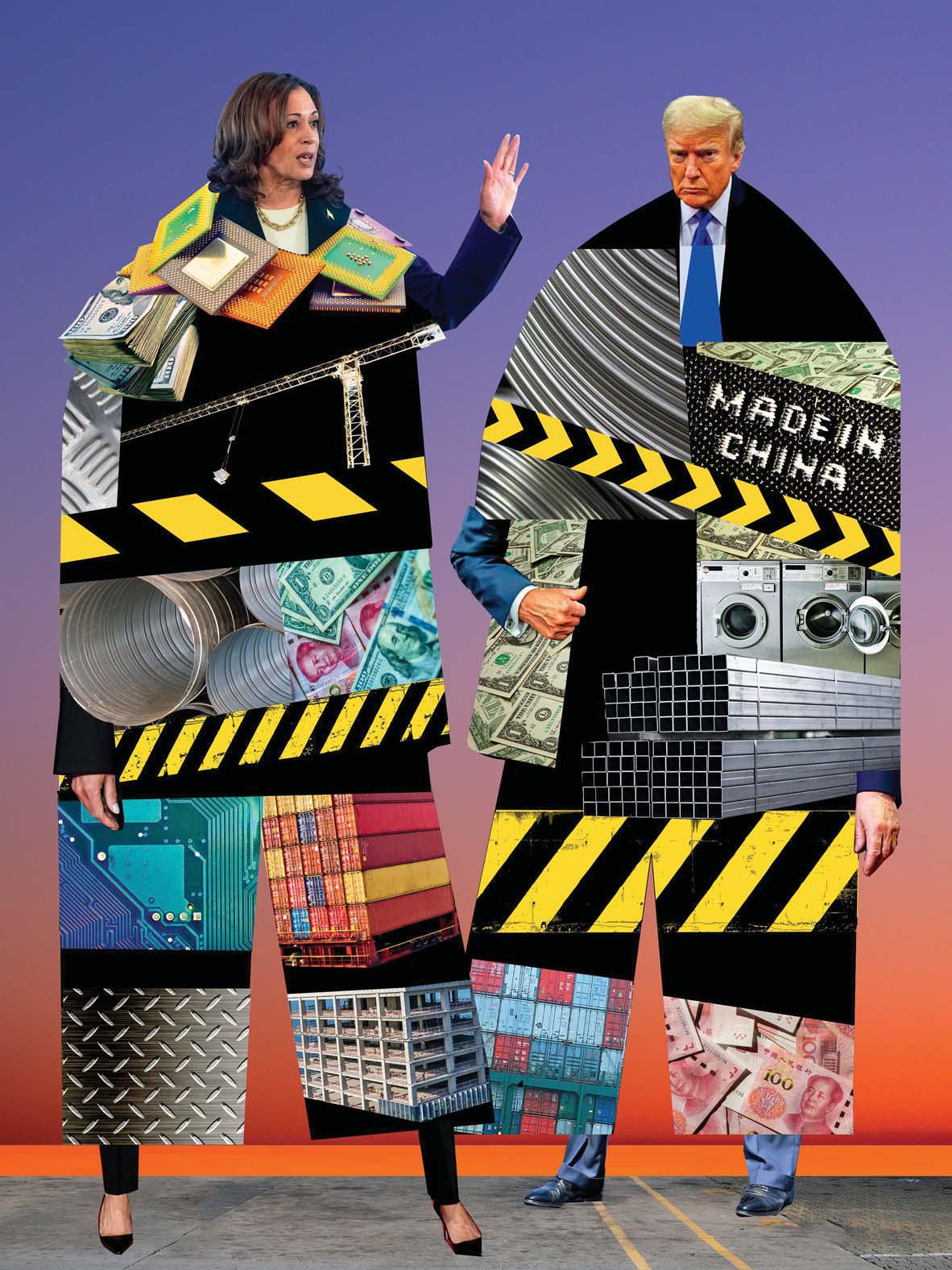Poging GOUD - Vrij
WHAT CAN BUSINESS EXPECT FROM THE NEXT PRESIDENT?
Fortune Europe
|August/September 2024
There's one thing Republicans and Democrats can agree on: higher tariffs on imports to America. Here are the challenges both parties' proposals will pose for corporate leaders.

EVERY DAY, YOU’RE PAYING A TAX that Congress never voted on, a tax that’s growing rapidly heavier. Yet you may not even know when you’re paying this tax because it goes by another name: tariffs. It is baked into the prices of products, from sneakers to semiconductors to compression springs, that are manufactured abroad or that use imported components or materials—that is, a large portion of the things Americans buy.
As the presidential election approaches, all signs point to higher tariffs on American imports—no matter who wins. (While Vice President Kamala Harris was the clear favorite to be the Democratic nominee as this article went to press, it’s safe to say that any potential rival would have a similar trade agenda.) The consequences will reach far beyond those ballooning hidden taxes that Americans pay. They will also influence global geopolitics and touch every business and consumer in the U.S., plus billions more worldwide.
The trend is still hard to believe, for those who have been following the issue. After decades of working for freer trade worldwide, the U.S. has reversed course, with both parties on board. The two sides don’t offer identical trade proposals—Donald Trump’s would be much more severe—but broadly speaking, this is a rare issue on which both sides of the aisle are aligned.
Both parties are pursuing this agenda to assert their commitment to protecting American industry and jobs from overseas competition—but business mostly doesn’t like it, especially companies selling consumer goods to price-sensitive customers already wary of inflation. “Unfortunately, there does seem to be this movement within both parties to turn insular and turn away from trade in ways that will be economically damaging,” says Neil Bradley, chief policy officer at the U.S. Chamber of Commerce. “They’re going to end up hurting average Americans.”
Dit verhaal komt uit de August/September 2024-editie van Fortune Europe.
Abonneer u op Magzter GOLD voor toegang tot duizenden zorgvuldig samengestelde premiumverhalen en meer dan 9000 tijdschriften en kranten.
Bent u al abonnee? Aanmelden
Listen
Translate
Change font size

